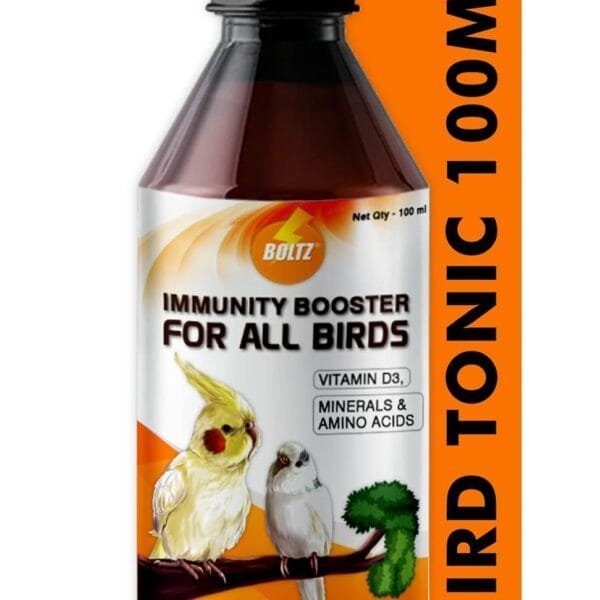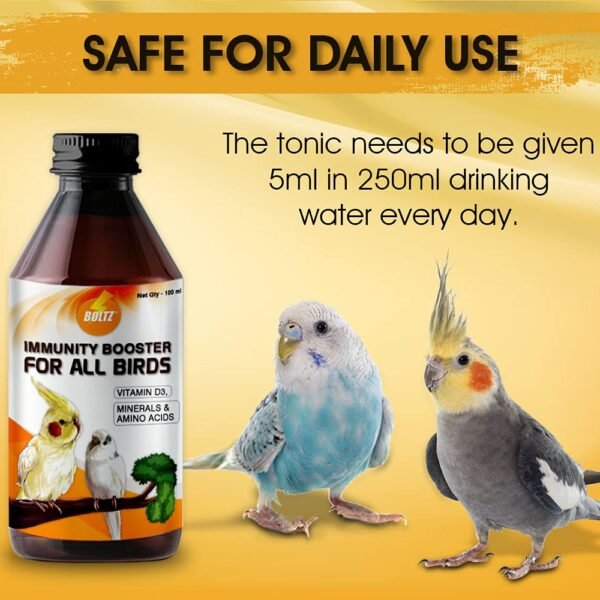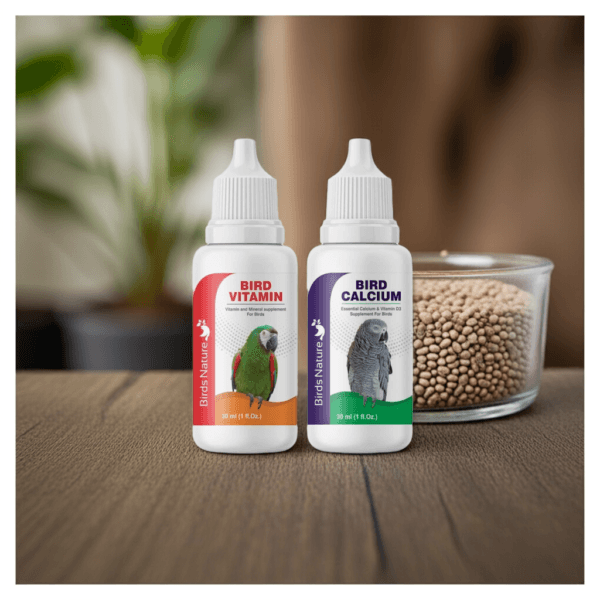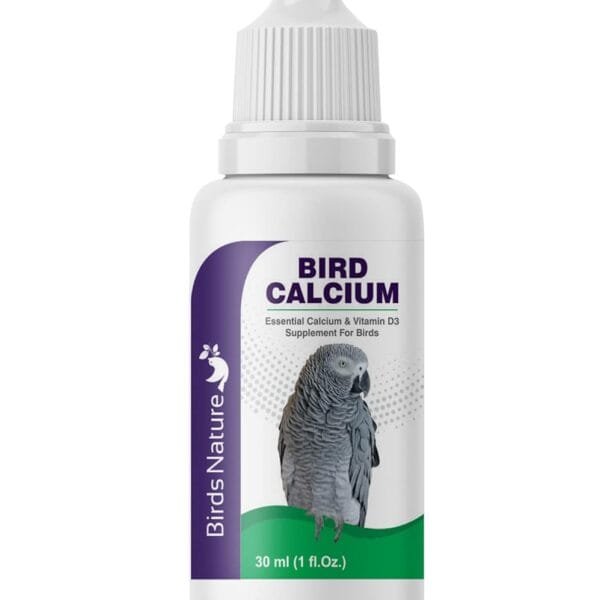Golden Conure
The Golden Conure (Guaruba guarouba), also called the Queen of Bavaria Conure, is a stunning golden-yellow parrot native to Brazil. These 14-inch birds are endangered in the wild but popular in aviculture for their playful nature and brilliant plumage. Highly social and intelligent, they require substantial interaction and large enclosures. Their vivid yellow coloration (with green wingtips in juveniles) makes them one of the most visually striking parrots.
| ESSENTIAL FACTS | |
|---|---|
| Scientific Name | Guaruba guarouba |
| Size/Weight | 35 cm (14 in) | 270-300g |
| Lifespan | 20-30 years |
| Conservation Status | Endangered (IUCN) |
| IDENTIFICATION | |
| Adult Plumage | Solid golden-yellow with green flight feathers |
| Juveniles | Mostly green with yellow developing at 6-12 months |
| Distinctive Features | White eye-ring, pale beak, long tapered tail |
| DIET | |
| Base Diet | 60% pellets, 30% vegetables/fruits, 10% seeds/nuts |
| Favorite Foods | Papaya, palm nuts, sprouted seeds |
| Avoid | Avocado, chocolate, high-fat seeds |
| HOUSING | |
| Cage Size | Minimum 36″W × 24″D × 48″H |
| Essential Features | Heavy-duty construction, multiple perches |
| Toys | Foraging puzzles, wood blocks, ropes |
| BEHAVIOR | |
| Vocalization | Loud calls, moderate speech ability |
| Social Needs | Highly social; 3-4 hrs daily interaction |
| Playfulness | Very active; needs constant stimulation |
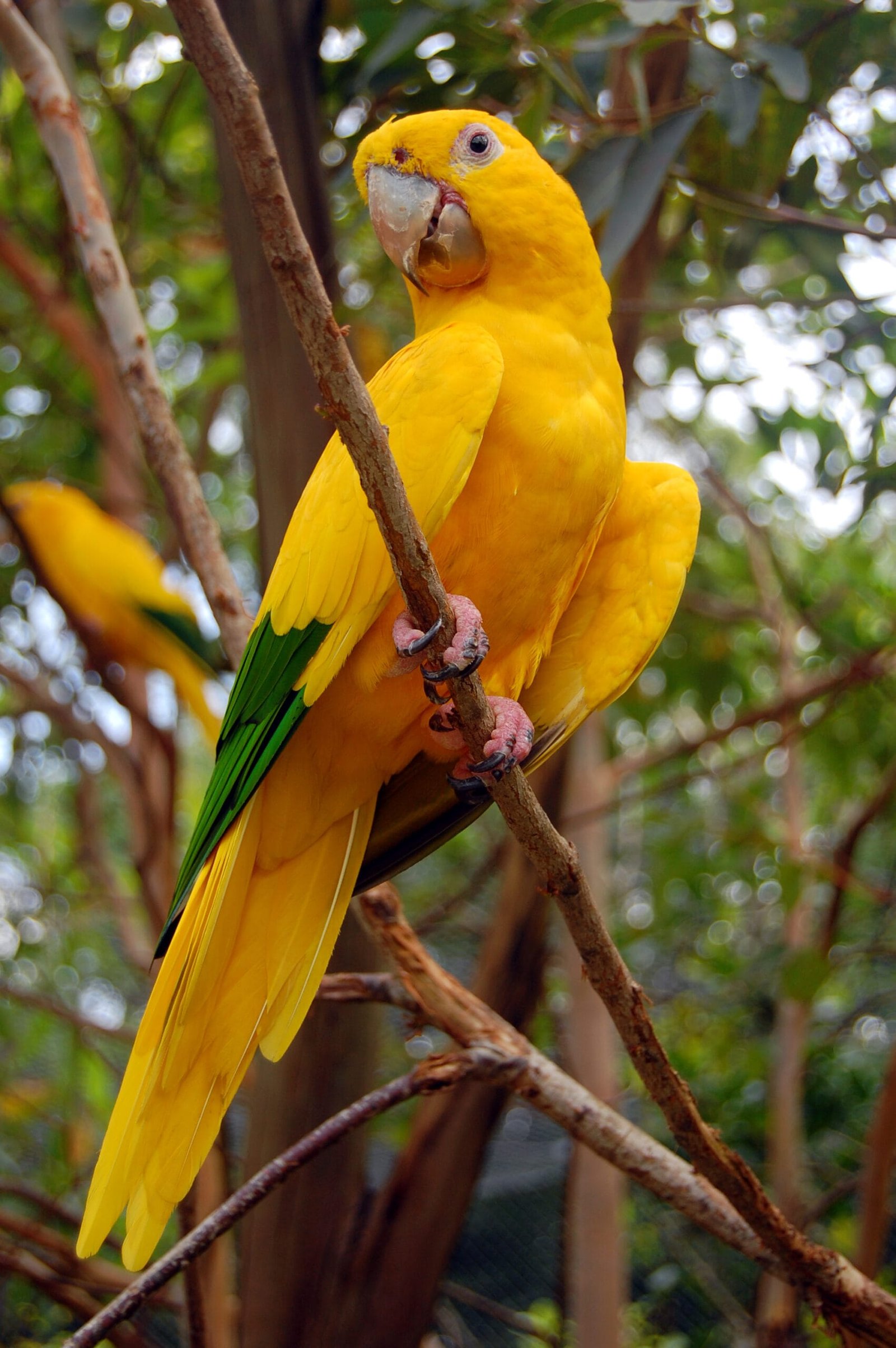
Showing all 3 results
Showing all 3 results
Golden Conure Care Schedule
DAILY CARE
| Task | Details | Time |
|---|---|---|
| Fresh Food | Pellets + chopped veggies/fruits (rotate types) | Morning (replace PM if soiled) |
| Water Change | Filtered water, scrub bowl with vinegar | AM & PM |
| Out-of-Cage Time | Supervised flight/exercise in bird-safe room | 2-3 hours |
| Social Interaction | Training, talking, or playing together | 1-2 hours |
WEEKLY CARE
| Task | Details | Frequency |
|---|---|---|
| Cage Deep Clean | Remove all items, disinfect with bird-safe cleaner | 1x week |
| Toy Rotation | Introduce 2-3 new toys to prevent boredom | Every Sunday |
| Weigh-in | Track weight for health monitoring | Same day weekly |
MONTHLY CARE
| Task | Details | When |
|---|---|---|
| Vet Check-up | Wellness exam (if no issues observed) | Every 6 months |
| Perch Replacement | Swap out worn wooden perches | As needed (check monthly) |
| Feather Inspection | Check for stress bars/mites | 1st of month |
Seasonal Considerations
Spring: Increased singing/hormonal behavior – provide extra toys to redirect energy.
Summer: Watch for overheating – offer misting baths and shade.
Fall: Molting season – supplement with protein-rich foods.
Winter: Ensure cage is draft-free; consider humidifier if air is dry.

